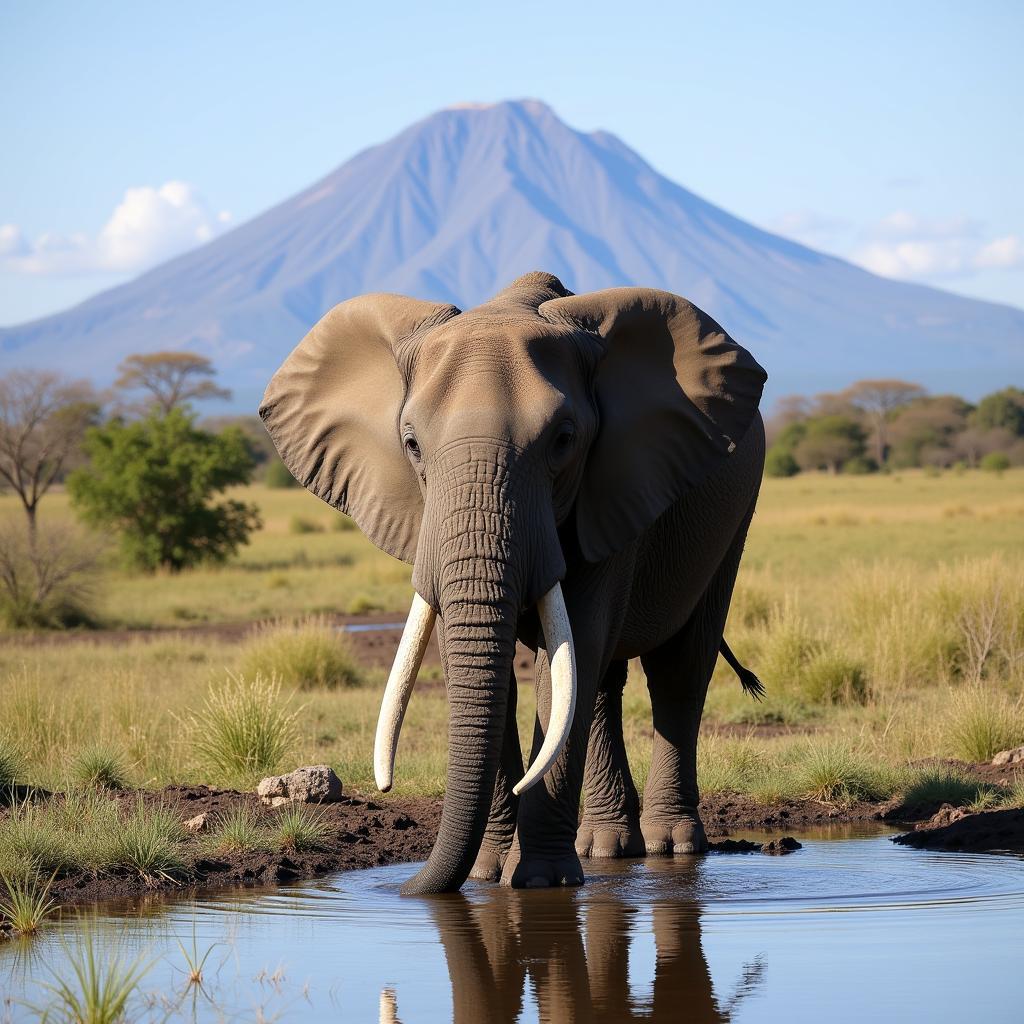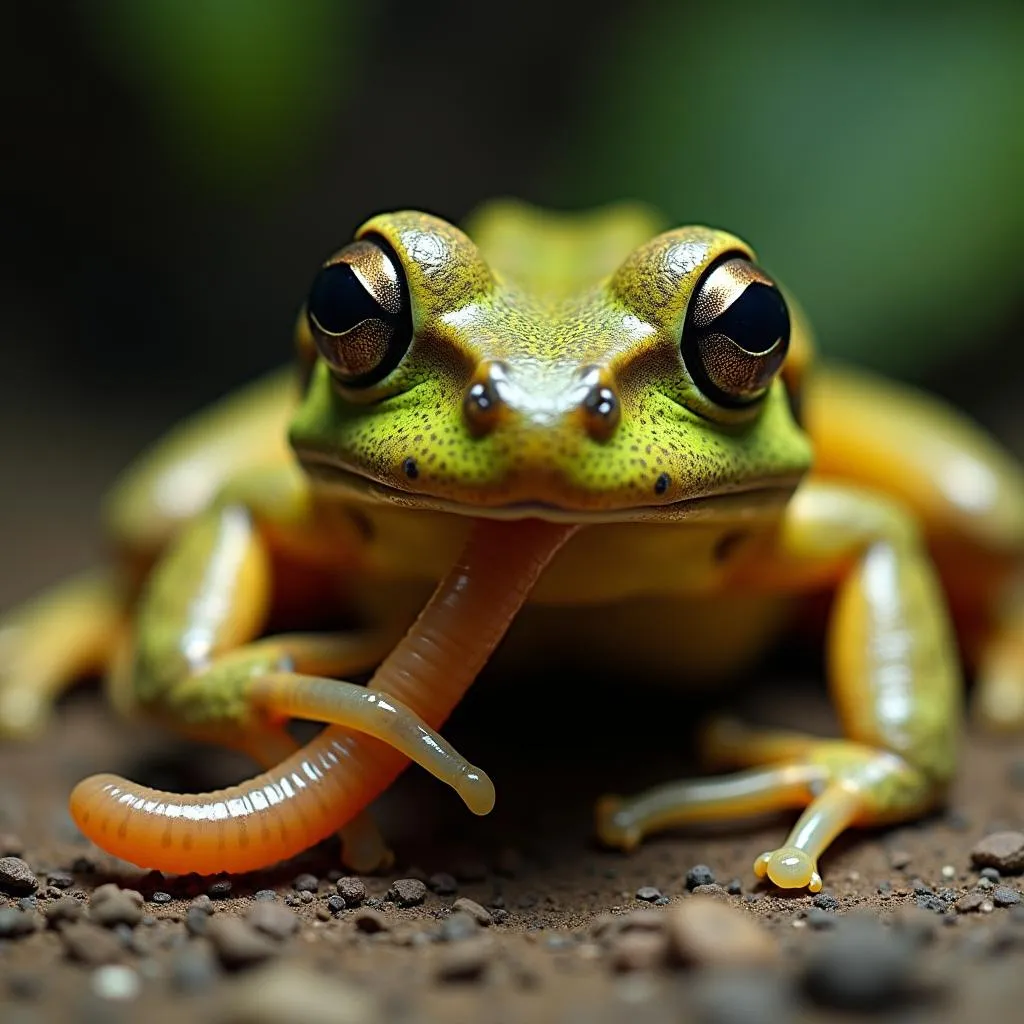African Clawed Frog Tank Care: A Comprehensive Guide
Setting up and maintaining the perfect habitat for your African clawed frog is crucial for its health and well-being. This guide covers everything you need to know about African Clawed Frog Tank Care, from tank size and setup to feeding and disease prevention. Let’s dive in!
Creating the Ideal African Clawed Frog Environment
African clawed frogs, also known as Xenopus laevis, are fully aquatic and require a specific environment to thrive. Choosing the right tank size is the first step. A 10-gallon tank is suitable for one or two frogs, but larger groups require more space. For example, three to four frogs would need a 20-gallon long tank. Overcrowding can lead to stress, disease, and aggression, so providing ample space is essential. The tank should have a secure lid as these frogs are surprisingly good jumpers!
Water quality is paramount for african clawed frog tank care. Use dechlorinated water and maintain a pH between 6.5 and 7.5. A good filtration system is crucial for removing waste and keeping the water clean. Regular water changes, about 25% weekly, are necessary to maintain optimal water conditions. Avoid using gravel as substrate, as the frogs may accidentally ingest it. Smooth sand or bare-bottom tanks are ideal.
Feeding Your African Clawed Frog
African clawed frogs are carnivorous and have a hearty appetite. They will eat a variety of foods, including sinking pellets, bloodworms, brine shrimp, and even small pieces of lean meat. It’s important not to overfeed them. Feed adult frogs every other day, while younger frogs require more frequent feeding. Remove any uneaten food after a few minutes to prevent water contamination.
Health and Disease Prevention
Proper african clawed frog tank care significantly reduces the risk of diseases. Maintaining good water quality, providing a balanced diet, and avoiding overcrowding are crucial preventative measures. Quarantine new frogs before introducing them to your main tank to prevent the spread of disease. Be observant for any signs of illness, such as lethargy, loss of appetite, skin discoloration, or unusual swellings. If you notice any of these symptoms, consult a veterinarian experienced with aquatic animals.
“Regular water changes are the single most important aspect of african clawed frog tank care,” says Dr. Anya Sharma, a veterinarian specializing in exotic animal care. “Clean water prevents numerous health issues and ensures your frog thrives.”
Tank Mates and Compatibility
African clawed frogs are generally peaceful but can be aggressive towards smaller tank mates, especially those they might mistake for food. Avoid housing them with fish or invertebrates. It’s generally best to keep African clawed frogs with others of their own kind.
Conclusion
Providing proper african clawed frog tank care is essential for their well-being. By following the guidelines outlined in this guide, you can create a thriving habitat for these fascinating creatures and enjoy their company for years to come. Remember that a healthy environment and a balanced diet are key to a happy African clawed frog.
FAQ
- How often should I clean my African clawed frog tank? (A: 25% water changes weekly)
- What should I feed my African clawed frog? (A: Sinking pellets, bloodworms, brine shrimp, small pieces of lean meat)
- Can I keep fish with my African clawed frog? (A: It’s generally not recommended)
- How big should my African clawed frog tank be? (A: A minimum of 10 gallons for one or two frogs)
- How do I know if my African clawed frog is sick? (A: Look for lethargy, loss of appetite, skin discoloration, or swellings)
- Can African clawed frogs breed in captivity? (See african dwarf frog breeding)
- What other creatures are compatible with African clawed frogs? (Check out the african dwarf frog compatibility chart)
You might also want to learn more about african dwarf frog and goldfish or check out this article about african clawed frog. If you are interested in getting started with these amphibians, you might consider looking for african dwarf frog tadpoles for sale.
When you need assistance please contact Phone Number: +255768904061, Email: [email protected] Or visit us at: Mbarali DC Mawindi, Kangaga, Tanzania. We have a 24/7 customer support team.




